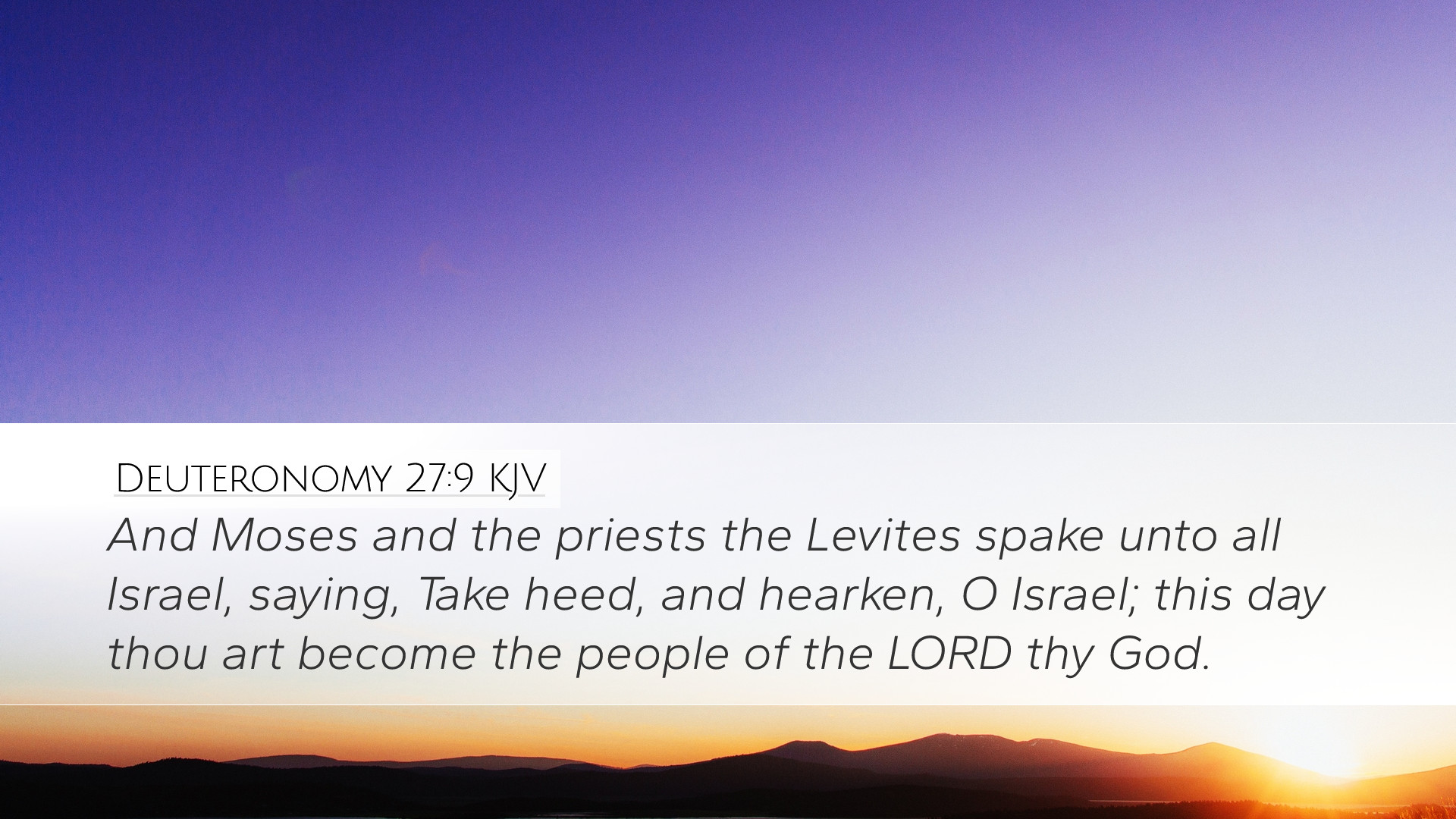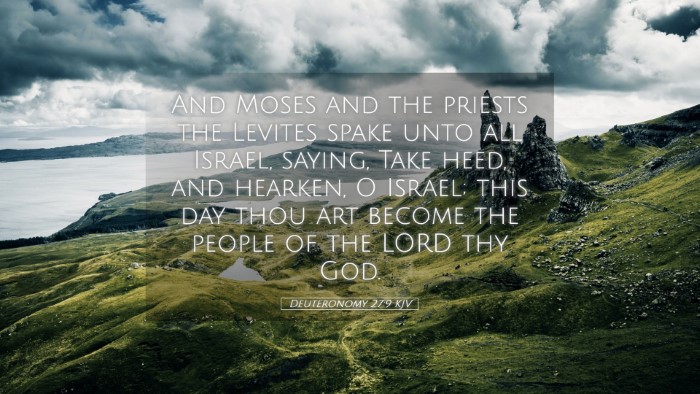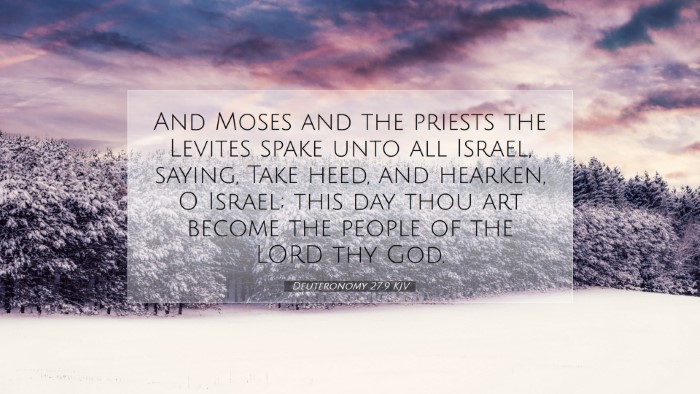Old Testament
Genesis Exodus Leviticus Numbers Deuteronomy Joshua Judges Ruth 1 Samuel 2 Samuel 1 Kings 2 Kings 1 Chronicles 2 Chronicles Ezra Nehemiah Esther Job Psalms Proverbs Ecclesiastes Song of Solomon Isaiah Jeremiah Lamentations Ezekiel Daniel Hosea Joel Amos Obadiah Jonah Micah Nahum Habakkuk Zephaniah Haggai Zechariah MalachiChapter
Deuteronomy 1 Deuteronomy 2 Deuteronomy 3 Deuteronomy 4 Deuteronomy 5 Deuteronomy 6 Deuteronomy 7 Deuteronomy 8 Deuteronomy 9 Deuteronomy 10 Deuteronomy 11 Deuteronomy 12 Deuteronomy 13 Deuteronomy 14 Deuteronomy 15 Deuteronomy 16 Deuteronomy 17 Deuteronomy 18 Deuteronomy 19 Deuteronomy 20 Deuteronomy 21 Deuteronomy 22 Deuteronomy 23 Deuteronomy 24 Deuteronomy 25 Deuteronomy 26 Deuteronomy 27 Deuteronomy 28 Deuteronomy 29 Deuteronomy 30 Deuteronomy 31 Deuteronomy 32 Deuteronomy 33 Deuteronomy 34Verse
Deuteronomy 27:1 Deuteronomy 27:2 Deuteronomy 27:3 Deuteronomy 27:4 Deuteronomy 27:5 Deuteronomy 27:6 Deuteronomy 27:7 Deuteronomy 27:8 Deuteronomy 27:9 Deuteronomy 27:10 Deuteronomy 27:11 Deuteronomy 27:12 Deuteronomy 27:13 Deuteronomy 27:14 Deuteronomy 27:15 Deuteronomy 27:16 Deuteronomy 27:17 Deuteronomy 27:18 Deuteronomy 27:19 Deuteronomy 27:20 Deuteronomy 27:21 Deuteronomy 27:22 Deuteronomy 27:23 Deuteronomy 27:24 Deuteronomy 27:25 Deuteronomy 27:26

